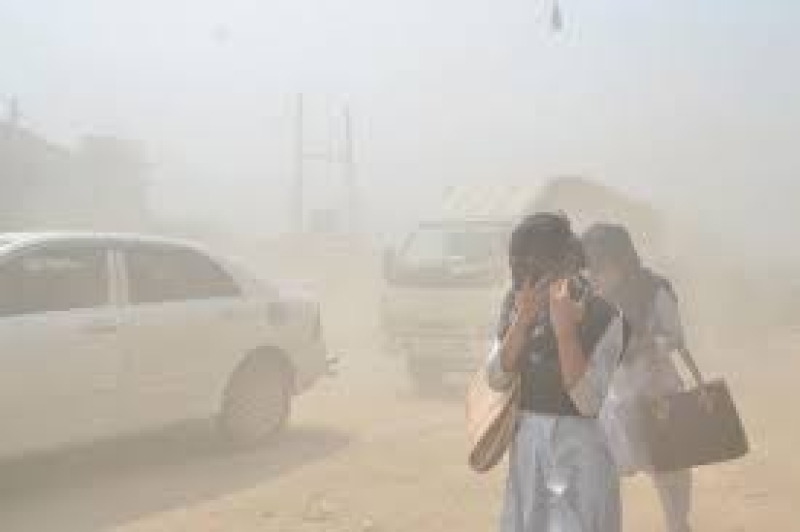- NCP to Push for Reforms After Eid |
- 600,000 Devotees Offer Eid Prayer at Sholakia |
- Bangladesh Economy Shows Signs of Recovery Amid Challenges |
- Bangladeshi Women Student July Protest Leaders to be honoured at Women of Courage Award ceremony |
- 'Eid of sadness': Gazans pass with scarce food, razing war |
Dhaka’s air still remains unhealthy on Sunday

Dhaka, the overcrowded capital city of Bangladesh, has ranked the fourth on the list of cities with the worst air quality with an AQI score of 158 on Saturday morning.
Today’s air was classified as 'unhealthy’, referring to a health risk to residents, according to the AQI index.
Nepal’s Kathmandu, Thailand’s Chiang Mai and Myanmar’s Yangon occupied the first, second, and third spots on the list, with AQI scores of 194, 181 and 171, respectively.
When the AQI value for particle pollution is between 50 and 100, air quality is considered ‘moderate’, usually sensitive individuals should consider limiting prolonged outdoor exertion, between 101 and 150, air quality is considered ‘unhealthy for sensitive groups’, between 150 and 200 is ‘unhealthy’, between 201 and 300 is said to be 'very unhealthy', while a reading of 301+ is considered 'hazardous', posing serious health risks to residents.
Dhaka’s air quality ‘unhealthy,’ ranks 5th worst
The AQI, an index for reporting daily air quality, informs people how clean or polluted the air of a certain city is and what associated health effects might be a concern for them.
The AQI in Bangladesh is based on five pollutants: particulate matter (PM10 and PM2.5), NO2, CO, SO2, and ozone.
Dhaka has long been grappling with air pollution issues. Its air quality usually turns unhealthy in winter and improves during the monsoon.
As per World Health Organization (WHO), air pollution kills an estimated seven million people worldwide every year, mainly due to increased mortality from stroke, heart disease, chronic obstructive pulmonary disease, lung cancer, and acute respiratory infections, reports UNB.

